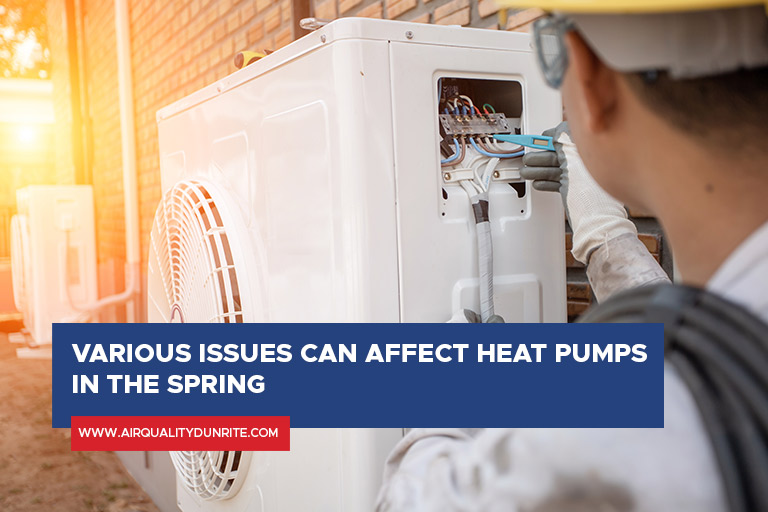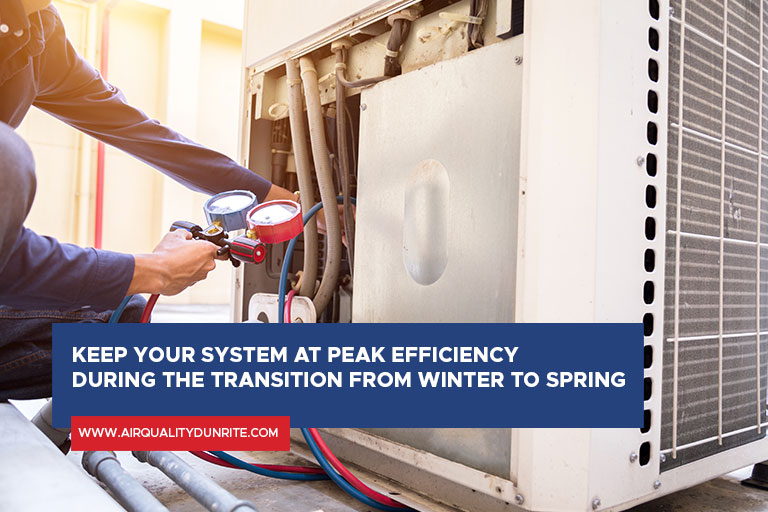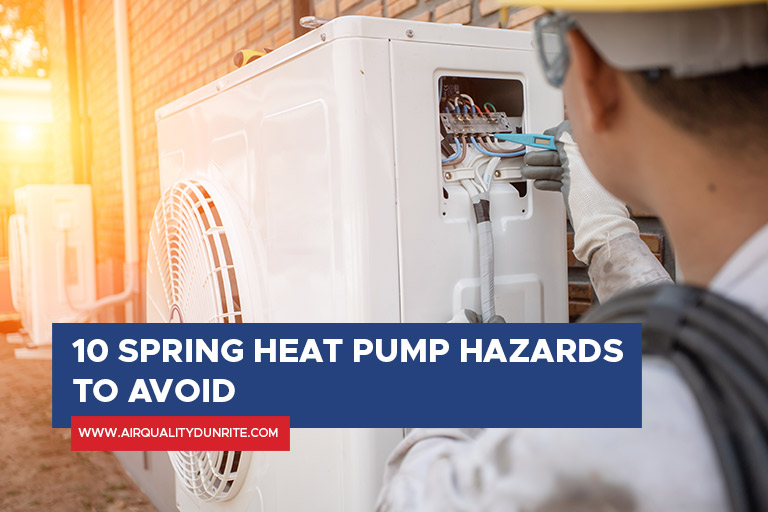As the snow melts and temperatures begin to rise, homeowners turn their attention to their heating and cooling systems, particularly heat pumps, which serve as an efficient means to regulate home temperature. However, spring brings its own set of challenges and potential hazards for these systems. Being aware of these issues can save time and money while ensuring your home remains comfortable and safe. This article highlights key hazards associated with heat pumps during spring and offers practical advice to mitigate these risks.
Spring Heat Pump Issues You Should Know About

1. Improper Maintenance
One of the most common hazards that can affect heat pumps in the spring is a lack of proper maintenance. During winter, heat pumps work extensively to keep homes warm, which can lead to wear and tear. Without a thorough inspection and maintenance, issues such as clogged filters, dirty coils, and blocked ducts can reduce efficiency and potentially cause the system to fail.
Solutions:
- Schedule a professional maintenance check before spring.
- Regularly replace or clean air filters.
- Ensure outdoor units are free from debris and foliage.
2. Refrigerant Leaks
Refrigerant leaks are a significant hazard for heat pumps, affecting their efficiency and cooling ability. The change in temperature during spring can exacerbate existing leaks or weaknesses in the refrigerant lines.
Solutions:
- Have a technician check for leaks and repair any issues.
- Monitor the system for signs of decreased efficiency or inability to maintain set temperatures.
3. Electrical Failures
Spring storms and fluctuating temperatures can lead to electrical failures in heat pumps. Power surges, lightning strikes, and even small animals seeking warmth can damage the electrical components of your system.
Solutions:
- Install a surge protector to guard against sudden power surges.
- Regularly inspect the electrical connections and components for signs of damage.
4. Blocked Condensate Drains
Condensate drains can become blocked with debris over the winter months, leading to water backup and potential damage to the system. This issue is especially prevalent in the spring as the use of the heat pump shifts from heating to cooling.
Solutions:
- Clear out any debris from the condensate drain line.
- Schedule regular maintenance to check for blockages.
5. Overworking the System
As temperatures vary in the spring, there may be a temptation to frequently adjust the heat pump settings. Constantly changing modes and temperatures can overwork the system, leading to premature wear and potential failure.
Solutions:
- Set a consistent, comfortable temperature rather than making frequent adjustments.
- Use programmable thermostats to gradually adjust temperatures.
6. Improper Installation
Improper installation of a heat pump can lead to numerous problems, including inefficient operation, increased wear, and even safety hazards. This is particularly a concern for homeowners who may have had new systems installed during the winter or are considering installation in the spring.
Solutions:
- Ensure installation is performed by certified professionals.
- If you’re considering a new heat pump installation, consult with experts who can assess your home’s needs and recommend the best system.
7. Thermostat Issues
Thermostat malfunctions can lead to inefficiencies in how heat pumps operate. Incorrect readings or failing batteries can cause the system to run more frequently or inadequately.
Solutions:
- Check the thermostat’s batteries and replace them if necessary.
- Consider upgrading to a smart thermostat for more accurate temperature management.
8. Outdoor Unit Damage
The outdoor unit of your heat pump is exposed to the elements, which can lead to potential damage. Winter conditions, such as ice and snow, can harm the unit, while spring brings about debris and growth that can obstruct airflow.
Solutions:
- Remove any debris, leaves, or branches around the outdoor unit.
- Inspect the unit for any signs of damage and have repairs conducted promptly.
9. Ductwork Leaks
Leaks in ductwork can lead to significant energy loss and reduced system efficiency. These issues can be exacerbated by the transition from heating to cooling, as different parts of the system are utilized more heavily.
Solutions:
- Have ductwork inspected for leaks and seal any found.
- Ensure that ducts are properly insulated to maintain efficiency.
10. Noise Pollution
A malfunctioning heat pump can generate excessive noise, indicating potential issues. This can be due to loose components, debris within the unit, or a need for lubrication.
Solutions:
- Schedule a maintenance check to identify the cause of the noise.
- Regular lubrication and tightening of components can reduce noise levels.
Hiring a Professional for Heat Pump Tune-up and Repair

Opting for a professional furnace heat pump tune-up and repair ensures your system operates at peak efficiency, especially crucial as we transition from the cold of winter to the warmth of spring. Professionals bring expertise, tools, and knowledge to diagnose and fix issues accurately, preventing minor problems from escalating into major repairs or complete system failures.
Expert Diagnosis and Comprehensive Repair
A trained technician can quickly identify the root cause of any heat pump issue, whether it’s a malfunctioning component, a refrigerant leak, or electrical problems. Their ability to diagnose problems accurately saves time and money, ensuring repairs are effective and durable. This expertise is particularly important for complex systems where DIY repairs can often lead to further damage or inefficiency.
Preventive Maintenance and Efficiency
During a furnace heat pump tune-up, professionals will perform a series of checks and adjustments to ensure your system is running as efficiently as possible. This includes cleaning coils, checking refrigerant levels, testing electrical connections, and inspecting ductwork for leaks. Preventive maintenance not only extends the lifespan of your heat pump but also improves its efficiency, leading to lower energy bills and a more comfortable home environment.
Safety and Warranty Protection
Working with a professional for heat pump repair and maintenance ensures that all work is done safely, adhering to industry standards and regulations. Additionally, many manufacturers require professional servicing to maintain warranty coverage, making it essential to hire a certified technician for any tune-ups or repairs.
Get Professional Heat Pump Tune-up and Repairs
Spring presents unique challenges for heat pump maintenance and operation. By addressing these potential hazards—ranging from improper maintenance to refrigerant leaks and electrical failures—homeowners can ensure their system runs efficiently and safely. Remember, regular checks and professional maintenance are key to preventing these common issues.
For expert assistance, Air Quality Dunrite stands ready to help with all your heat pump needs. Call us at (416) 674-8184 for reliable heat pump installation and maintenance services.



